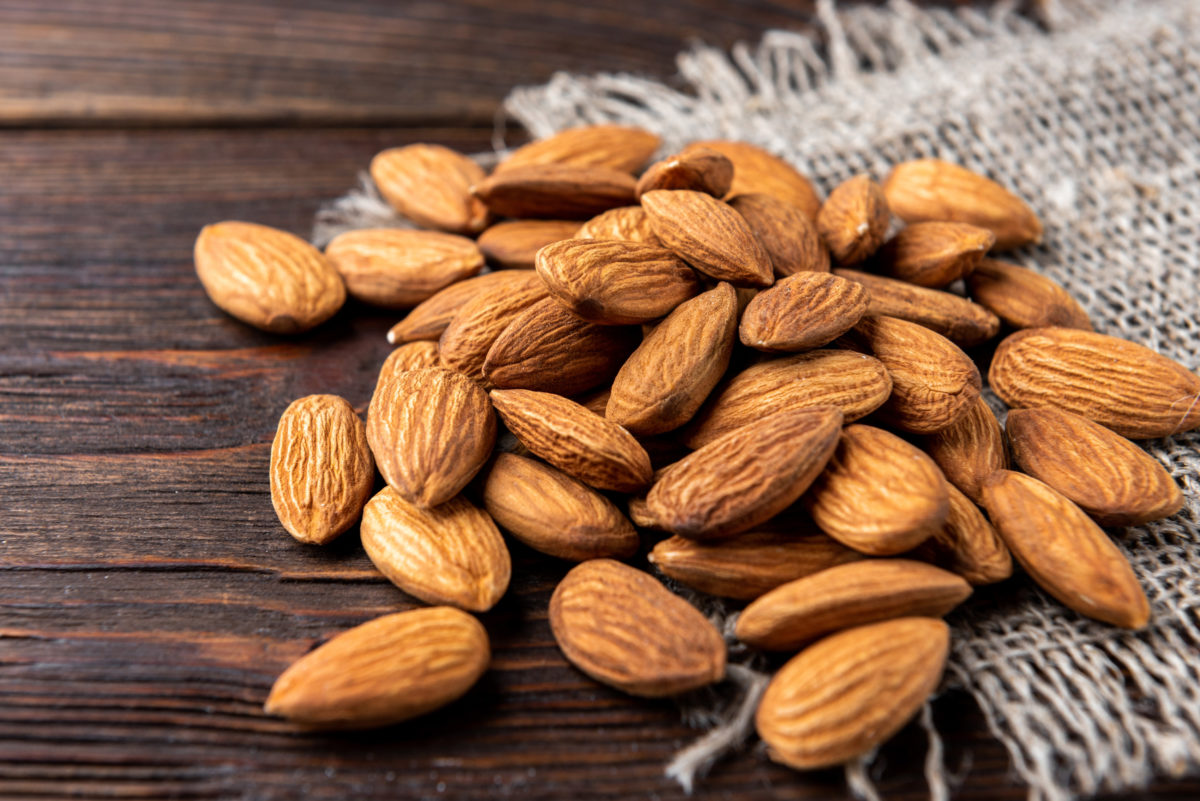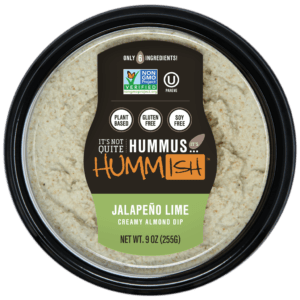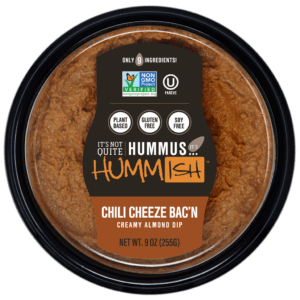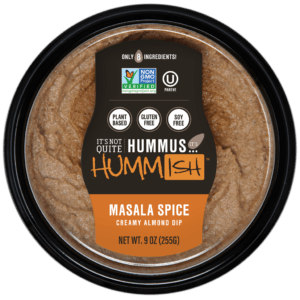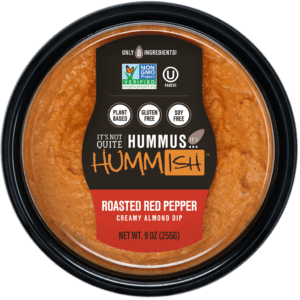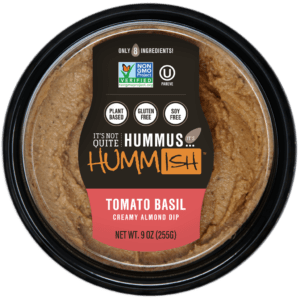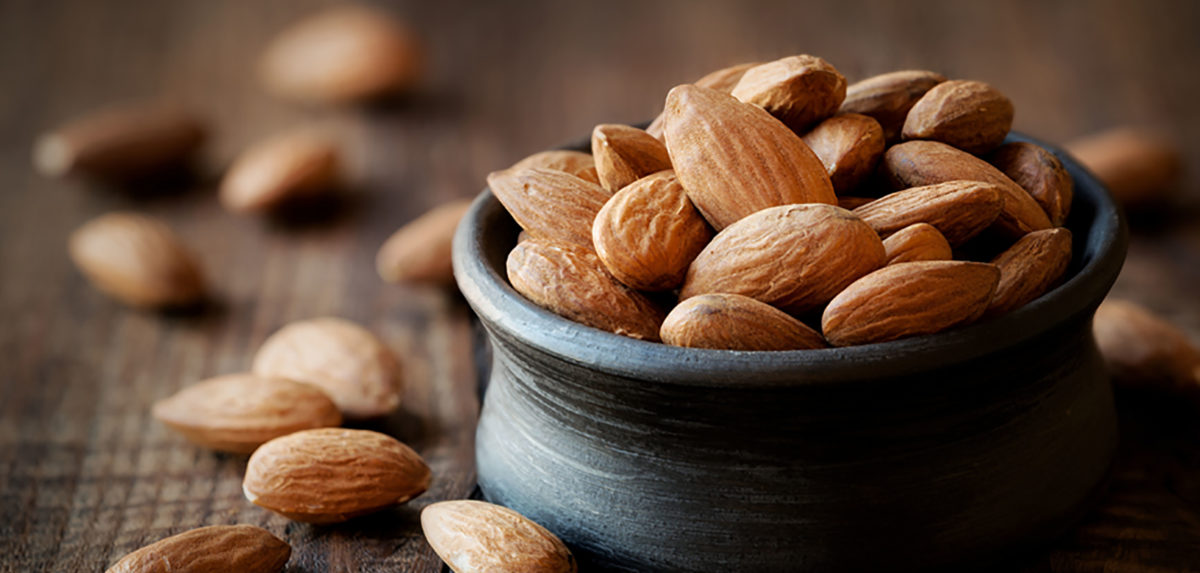

Traditionally speaking, dips have a reputation for being less than healthy, and snacks in general are hard pressed to be considered nutritious. The reality is the popularity of dips is not going anywhere, so we figured we might as well pack them full of benefits, purpose and power.
Why Almonds?
When creating Hummish, choosing Almonds over other options was an easy choice. They are full of benefits, purpose and power.
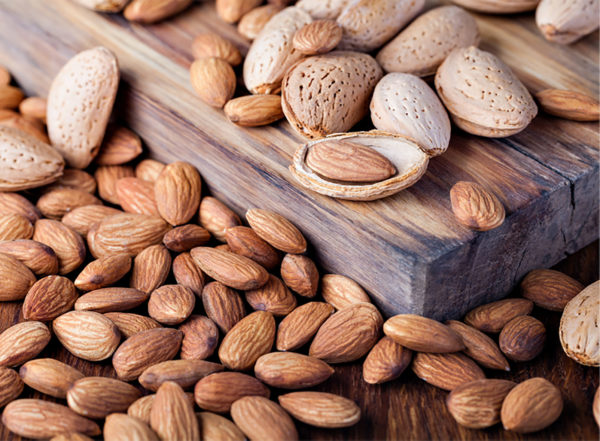
Almonds have a profound effect on body weight.
A 2003 study shows that consuming almonds, as opposed to other complex carbohydrates (chickpeas, potatoes, etc.), resulted in greater reductions in weight, waist circumference, fat mass, total body water, and systolic blood pressure¹. Another study in 2013 shows an increase in metabolism and reduced hunger when consuming almonds².
Almonds are powerful at reducing the risk of cardiovascular disease. Research shows that consuming almonds lowers the total cholesterol and LDL, while still maintaining the levels of HDL, the good cholesterol³,⁴. Almonds also help protect against plaque buildup in the artery walls⁵. As heart disease is the number one cause of death, almonds are a great ingredient to get into the daily diet.
So why whole almonds, skin intact?
A unique combination of bioavailable flavonoids in almond skin has been discovered to potentially act as an antioxidant, reducing the risk of inflammation, cardiovascular disease, and cancer⁶.
Full of antioxidants and researched to reduce the risk of diabetes, cardiovascular disease and weight gain, almonds are a powerful food. Of course, we chose almonds- with impactful and delicious in mind!
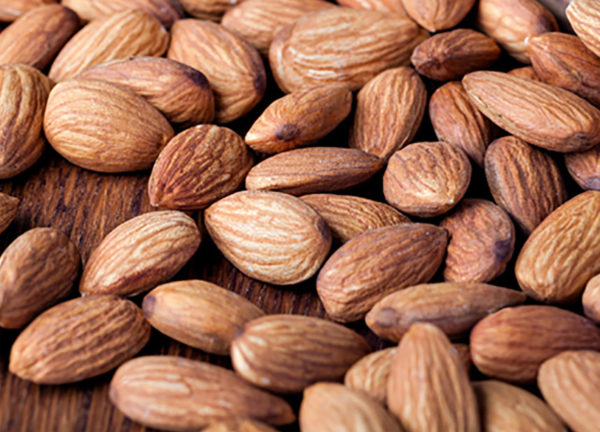
Available in 5 great flavors
¹ Liu, Y., Hwang, H. J., Ryu, H., Lee, Y. S., Kim, H. S., & Park, H. (2017). The effects of daily intake timing of almond on the body composition and blood lipid profile of healthy adults. Nutrition research and practice, 11(6), 479–486. doi:10.4162/nrp.2017.11.6.479
² Tan, S. Y., & Mattes, R. D. (2013). Appetitive, dietary and health effects of almonds consumed with meals or as snacks: a randomized, controlled trial. European Journal of Clinical Nutrition, 67(11), 1205–1214. doi: 10.1038/ejcn.2013.184
³ Wien, M. A., Sabaté, J. M., Iklé, D. N., Cole, S. E., & Kandeel, F. R. (2003). Almonds vs complex carbohydrates in a weight reduction program. International Journal of Obesity, 27(11), 1365–1372. doi: 10.1038/sj.ijo.0802411
⁴ Berryman, C. E., Preston, A. G., Karmally, W., Deckelbaum, R. J., & Kris-Etherton, P. M. (2011). Effects of almond consumption on the reduction of LDL-cholesterol: a discussion of potential mechanisms and future research directions. Nutrition Reviews, 69(4), 171–185. doi: 10.1111/j.1753-4887.2011.00383.x
⁵ Hruby, A., Odonnell, C. J., Jacques, P. F., Meigs, J. B., Hoffmann, U., & Mckeown, N. M. (2014). Magnesium Intake Is Inversely Associated With Coronary Artery Calcification. JACC: Cardiovascular Imaging, 7(1), 59–69. doi: 10.1016/j.jcmg.2013.10.006
⁶ Chen, C.-Y., Milbury, P. E., Lapsley, K., & Blumberg, J. B. (2005). Flavonoids from Almond Skins Are Bioavailable and Act Synergistically with Vitamins C and E to Enhance Hamster and Human LDL Resistance to Oxidation. The Journal of Nutrition, 135(6), 1366–1373. doi: 10.1093/jn/135.6.1366
